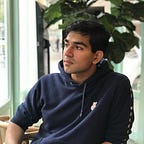Make reading work for you
What counts as reading a book? Last year, I talked about this question from the media-format point of view; I discussed if listening to an audio book counted as much as reading a physical book. But there is an other way in which this question can be looked at: how much of the book do I have to have read to say I “read” the book?
Every year, I have a different answer to this question. And in 2023, I’ve decided that reading/listening to every single word of a book is not the qualification I’ll be following. For the past couple of years, I’ve strongly believed that to have said you “read” a book, you have to have consumed the entire contents of a book — if you didn’t actually read or listen to every word, you didn’t actually read the book. But towards the end of last year, I started a new practice which changed my views: skimming or skipping over sections of books I didn’t feel the need to read.
This new act of glossing over entire sections of books was revolutionary for me. I was starting to get through more books, but more importantly, I stopped feeling anxious about getting through sections of books I wasn’t enjoying. Often, I found the hardest part about reading for me wasn’t starting new books, or even read through large books, but trying to make my way through sections of books I was thoroughly not enjoying. By eliminating this “requirement” I used to impose on myself, I was able to swiftly move past sections of books I found boring and keep up my quick reading pace in a book I was otherwise enjoying. This was something new that I knew I’d incorporate into my reading framework for 2023.
So, what framework will I be following this year? Usually, in my goals, I talk about how many books I’ll read, the amount of books per genres, or other things can quantify easily. But those values don’t really represent a framework. Rather, they are more like milestones I want to meet. This year, I decided to write my reading goals in terms of a framework I’ll aim to follow. Here is what I plan on following in order to make reading work better for me this year.
ONE: Definition of “done” for a book is if I felt I got through all the parts of the book that I wanted to. Now, for fiction or story based books, it’s fair to say that skipping over sections or chapters would likely mean I’ve missed out on that actual story, so they are not really counted under this guideline. But for non-fiction books, or anything with distinct sections, as long as I’ve gotten some value out of the book, or read through the majority of sections I’m interested in, I would have counted it as read.
TWO: There is no minimum amount of books I want to read. Last year, I set a goal of reading 52 books, up from 42 books in 2021. I thought it was a great goal to try and read a book a week. But, I often found myself reaching for smaller books, or listening to books on 3x speed, just to add to my book count, instead of actually enjoying the book. To break this bad habit, I am removing this minimum requirement. Also, I don’t need this number in order to read more as I already enjoy reading, so I’m confident I’ll read plenty as long as I keep it up consistently.
THREE: Read more of what I want to, not what I think I should. Recently, I have realized that I will deprive myself of reading books that I really want to in favor of something I feel I should read, like a famous classic, or a popular book that came out more recently. But I do this at the cost of actually reading the books on my shelf that I want to. So, this year I will make a conscious effort not to do that, and instead focus on reading the books I actually want to read. (I do this with movies too, so I plan to stop this for the movies I want to watch as well).
These are the three parts of the framework I will be following this year for reading. I hope you can take parts or the entirety of this framework to help make reading work for you this year. Ultimately, reading should be an enjoyable activity, not something super stressful that you force yourself to do. So, if you are starting to feel pressure to read more books, or to read a certain way, take a moment to reflect on why you’re feeling that way. And consider if a change in your beliefs about reading, instead of changing the types of books or amount of books you’re reading, might by all you need to improve your feelings about reading in this new year.
Thanks for reading! I’d love to hear your thoughts on how to read so feel free to send them my way or leave them in the comments. Happy 2023!
